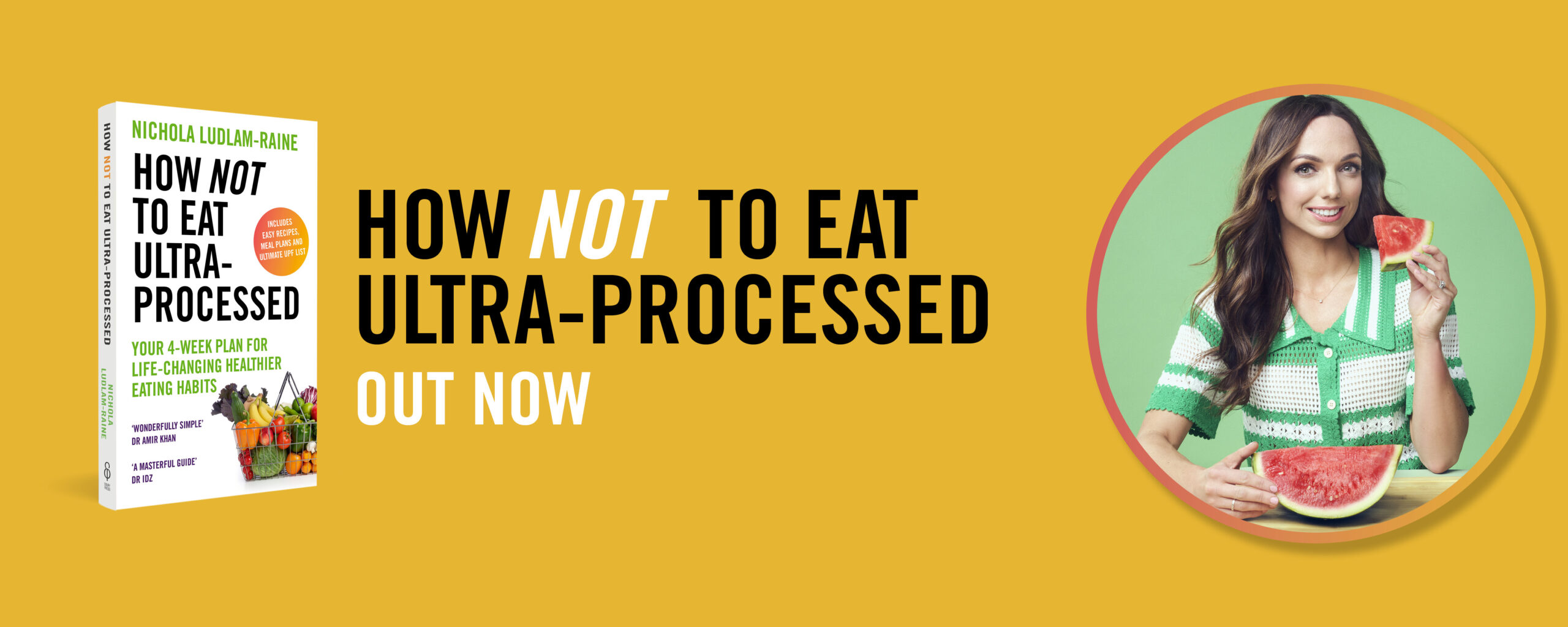
If you find stress levels increasing, your eating patterns are likely to be affected. In the March/April edition of Superfood Magazine I discuss my top 10 tips on how to bring your emotions and stress back under control.
******************************************************************************************************
Stress can play havoc with our eating patterns; it not only drives our appetite but it can lead to emotional eating too. Although eating gives us the chance to disconnect from the stressful situation in hand, it isn’t a long-term solution as food only acts as temporary pacifier of emotions.
Stress or emotional eating can also lead to unhealthy food choices; we’re worrying about the past or the future, rather than focusing on the food that we’re eating in the present.
Have you ever noticed that STRESSED spelled backwards is DESSERTS?
If you find stress levels increasing then try my ten top tips on how to bring your emotions and stress under control:
- 1) Prioritise with a To Do List
Writing down what you have to get done is the first step to taking control of your time. I personally like to divide up what I have to do into four segments:
MUST – SHOULD – COULD – WANT
Dividing up my tasks into these four segments makes it easy to see at a glance what needs to be done first. The key is to accept that you cannot do everything all at once, and then prioritise your workload. “MUST” tasks have more urgency, “SHOULD” tasks have importance but without as much urgency, “COULD” tasks have a lesser importance and urgency, and “WANT” tasks can wait.
When it comes to tackling your to do list, starting with your “MUST” list, perform tasks one at a time. It’s a myth that our brains can multitask effectively; we simply switch our focus from one thing to another quickly, so make sure to remove any distractions. For me this means removing my phone from my vicinity and turning off the T.V.
- 2) Learn to Say ‘No’
This one is hard, but once mastered will help to reduce your stress levels hugely! If you’re short on time try not to take on extra responsibility and say ‘no’ to activities which your heart isn’t truly in.
If tasks don’t add to your enjoyment of life or career then ask yourself should you really be doing it. The more you say no, the more time you will have to focus on what really matters to you and the less stress you will feel.
- 3) Avoid Unhealthy Habits
Many people turn to alcohol, nicotine (smoking) and/or caffeine when they’re stressed but none of these will help in the long-term. Specifically, although alcohol acts as a stimulant in small volumes, it is a depressant when consumed in large amounts. And as nicotine and caffeine are natural stimulants they may actually increase levels of stress rather than having a calming effect. In addition, excessive caffeine consumption (more than 4-5 cups of coffee a day) can impact negatively on sleep.
– ALCOHOL: Try to rely less on alcohol if you use it to de-stress. One step may be to keep it to weekends only; try swapping your glass or two of wine for a hot bubble bath and a magazine; your waist-line will thank you for this as well as your liver!
– SMOKING: Your GP or nurse has access to successful smoking cessation schemes which will help you to cut down and hopefully stop your addiction to nicotine. Stopping smoking really is one of the best things that you can do for your health!
– CAFFEINE: If you love tea or coffee but want to consume less caffeine why not try alternating your drinks with decaf? Or even better you could drink water, herbal teas, a coffee alternative such as barley coffee, or even green tea which contains less caffeine than regular tea and coffee. Stay hydrated throughout the day to prevent headaches which could add to your stress.
- 4) Get Physical
Regular exercise helps to improve mood and reduce levels of stress and anxiety, which means that breaking up a stressful day with a walk in the fresh air is essential. Walking is one of the cheapest and easiest forms of physical activity and a common target is to reach 10,000 steps (5 miles) a day; but really it’s a case of more steps the better. You may be surprised at how many (or how little!) steps you do and most smartphones have a tracker already built into them; in a lunch-break for example you can walk 3,000 steps in just 30 minutes.
If you prefer other forms of activity then aim to do it at a moderate-intensity (i.e. your heart is beating a little faster than usual and you feel a little warm) 150 minutes a week; 5 x 30 minutes, in addition to strength based training (exercises that involve large muscle groups) twice a week.
In addition to reducing stress physical activity also improves your heart health, immunity and it burns calories too, making weight loss easier. Regular physical activity also helps to improve sleep.
- 5) Sleep 7-8 Hours a Night
Being sleep deprived (sleeping for less than 6 hours a night) can induce stress. Sleep is the time when our body and mind rests and rejuvenates. It sorts out what has gone on in the day and helps to improve memory. Sleep also helps us metabolically by regulating our immune system and weight/hunger hormones too.
Ideally we should go to bed and wake up at similar times every day. Tips for getting a better night’s sleep include making sure the room is dark, cool and peaceful, as well as avoiding caffeine late afternoon/evening.
- 6) Speak to a Friend or Family Member
Locking up your feelings isn’t good for stress; after all, haven’t you heard that a problem shared is a problem halved? Discussing your feelings can help to release any built-up stress and will also help to distract you, giving you time to rationalise what really is going on. Giving yourself the opportunity to discuss important/problematic matters can also help you to find solutions.
Choose a friend or family member that you trust and/or who makes you smile; laughing after all is an excellent stress reliever!
- 7) Invest in a Gratitude Journal
A gratitude journal (or 5 minute journal) is a journal that you write in once or twice a day; usually first thing in the morning and last thing at night. You note down at least 2-3 things that you are grateful for, as well as what has gone well in the day. Some journals even have space for what you would like to do better the next day, in addition to positive, motivational quotes.
Gratitude journals have been shown to reduce self-reported stress levels, and when done at night can help to induce a feeling of calm. Writing down what you are grateful for also helps to gain clarity on what matters to you most; and what you should be focussing your attention on.
If you want to start a gratitude journal you can either use a blank diary or one that is set out for you; keep it by your bed to act as a reminder to fill it in as well as a symbol of gratitude and appreciation when you look at it. I personally have The Five Minute Journal and have found that it makes you appreciate loved ones much more and helps you to put into perspective life’s often meaningless troubles!
- 8) Be Kind to Yourself
Speak to yourself how you would speak to a friend, as self-compassion can help to decrease stress levels. Understand that you’re not super-human and be realistic about what exactly you can achieve in a day. A tip is to add ‘buffer time’ between your appointments/daily tasks; time when you are allowed to procrastinate/have a scroll through Facebook from time to time!
If tasks don’t get done don’t beat yourself up; simply create a new plan for the next day about how you’re going to tackle them. It’s often easy to push through missing meals and burning the midnight oil, thinking that you’ll get more done, but your productivity levels will suffer in the end. It’s much better to admit defeat and call it a day; a good night’s sleep will allow your brain to rest and recover ready for the following day.
- 9) Focus on the Now
Mindfulness can be defined as a “mental state achieved by focusing your awareness on the present moment whilst calmly acknowledging and accepting your feelings, thoughts and bodily sensations”. Focussing on what is going on in the present may help to reduce feelings of stress; diverting our attention from worrying about past or future events.
Deep breathing is another technique that can help to bring about feelings of calm, as well as imagining something that makes you happy; for example a beach or a flowery meadow.
- 10) Take Time to Relax
Don’t neglect ‘me time’. If you work long hours it can be easy to neglect ‘pamper time’. Make sure to schedule in activities that you love and enjoy; it could be a facial, a massage, a bubble bath or even a walk with friends, just make sure to do it on a regular basis.
And if you ever become ill remember that’s it’s ok to take a step back from your usual daily duties in order to get better; you’ll recover faster that way!
I really hope you find these tips useful and would love to hear what helps you to manage your stress levels!
*Images by Fields Photography London. This article was originally written for Superfood Magazine. It contains an affiliate link to Amazon to a book that I purchased myself. Please read my disclaimer page for more information.



Love these tips, it just reminds me that I should dedicate more time for myself and for relaxation. I do have a gratitude journal though, I just forget to use it as I am so busy!
Thanks Petra!!
Hi,
I suffer with bloating on a regular basis, I’ve tried food diaries ect and can’t narrow it down to a specific food group, I have tried peppermint capsules but this has not worked, is there any probiotics that you recommend?
Thanks
Hey Jade, check out optibac and symprove for their bloating specific probiotics.. bloating may be due to dietary issues though – have you watched my video on IBS? http://nicsnutrition.com/ibs-diet-tips/ xx
Great Post!
Aw thank you!